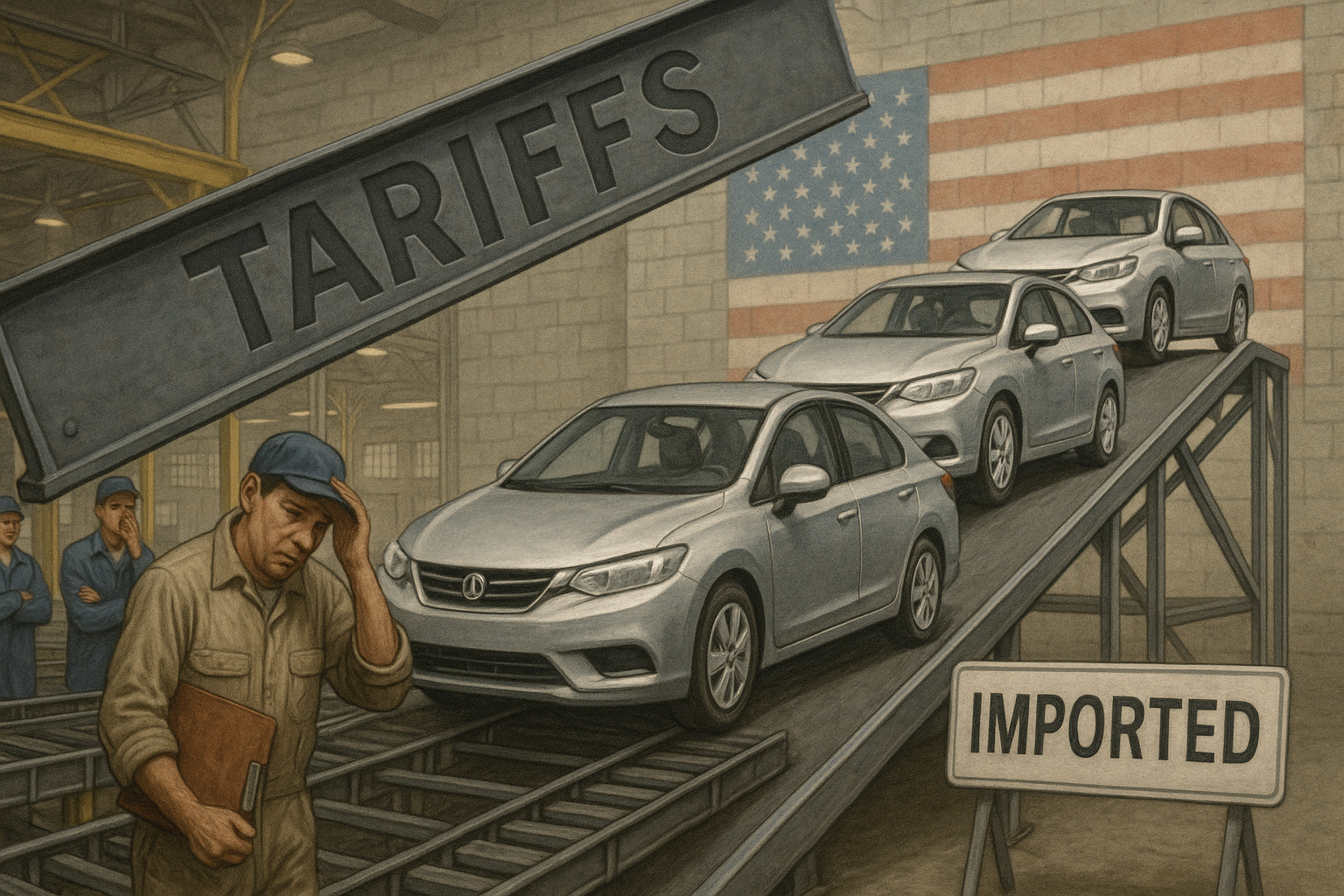In what might be the most spectacular case of friendly fire in recent trade policy, the Trump administration is now celebrating a "deal" with Japan that manages to accomplish exactly the opposite of its stated goals. It's economic policy that would be darkly comical if real jobs and companies weren't hanging in the balance.
The administration recently slapped a 15% tariff on Japanese vehicles—combining a new 12.5% car-specific tariff with the existing 2.5% duty. But here's the kicker: with this move, it'll now be cheaper to import fully-assembled cars from Japan than to import the raw materials and components needed to build those same cars on American soil.
Let that sink in for a moment.
Having covered trade policy for years, I've seen plenty of self-defeating economic moves, but this one deserves some kind of special recognition. It's like installing an elaborate home security system that locks you in your basement while leaving your valuables on the front lawn.
The problem is painfully straightforward. American automakers like Ford and GM rely on global supply chains. They import steel, aluminum, and countless components to build their vehicles here. When you tax those inputs at high rates (as the administration has already done with steel and aluminum tariffs), but set a lower effective tariff on completed vehicles... well, you've just handed foreign manufacturers a gift-wrapped competitive advantage.
"It's breathtakingly counterproductive," one automotive industry analyst told me yesterday. "I've had to explain this twice to our investors because they initially thought I was joking."
The market implications aren't theoretical—they're already unfolding. Ford and GM shareholders are staring down a rougher road ahead, not because of any strategic missteps by company leadership, but because Washington has effectively decided to tilt the playing field against them.
The deeper irony? This is happening under the banner of "America First" trade policy.
Look, there's a legitimate debate to be had about international trade rules. Japan's automobile market hasn't always been the most open to American products. But creating a tariff structure that actively penalizes domestic manufacturing over imports? That's not protecting American jobs—it's endangering them.
I spoke with a manufacturing consultant in Michigan who didn't mince words: "If building cars here becomes structurally more expensive than importing them fully assembled, what exactly do we think happens to American auto plants over time?"
Good question.
The political calculus behind this move remains... puzzling. Are voters expected not to notice or care about price increases on major purchases like cars? (And trust me, they will increase—these costs always find their way to consumers eventually.)
A Republican strategist in a Rust Belt state put it bluntly to me off the record: "Telling middle-class voters in Michigan that their Ford costs more because we're 'winning' on trade is gonna be a tough sell in an election year." November may tell us whether that assessment hits the mark.
For investors watching this unfold, the implications extend well beyond just auto stocks. This episode highlights how quickly sectoral fortunes can shift based on policy decisions that appear driven more by political symbolism than economic logic.
The resulting uncertainty? It creates both pitfalls and opportunities, particularly in manufacturing sectors with complex global supply chains. Some companies will find ways to adapt—they always do—but the adaptation process itself carries costs and inefficiencies.
Perhaps most frustrating about this particular economic own-goal is how unnecessary it seems. There are legitimate trade issues with various countries, including Japan. But creating a system where American manufacturing is at a disadvantage compared to imports? That's... not exactly Making America Great Again, is it?
As an old Wall Street mentor of mine used to say (usually after his third scotch): "Never attribute to malice what can be adequately explained by someone not understanding second-order effects." That wisdom seems particularly relevant here.
So if you've got positions in American auto manufacturers, you might want to buckle up. The road ahead looks bumpy—and not because those companies did anything wrong. Sometimes in markets, as in life, your journey isn't determined by how well you drive, but by who's designing the roads.
